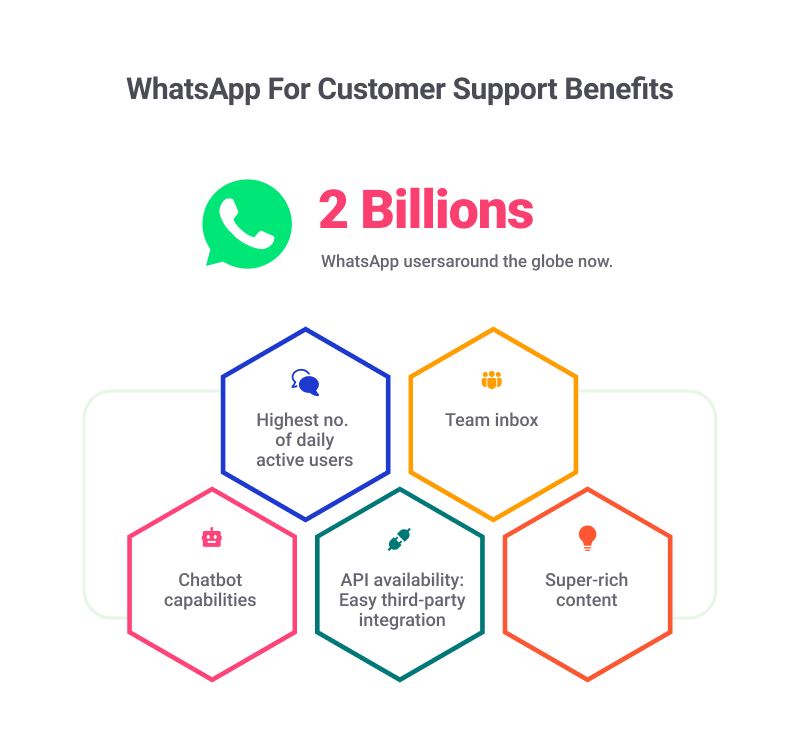In today’s digital-first world, great customer experience (CX) is what differentiates an enterprise from its competition. WhatsApp, with its two billion users across 180 countries, offers businesses the ability to connect with a broad audience.
Consumers want to communicate with brands like they do with friends and family. The channel allows companies to build lasting relationships and deliver personalised interactions at speed.
But why should companies use WhatsApp business messaging?
In this blog we explore three key reasons and sample use cases that explain why businesses ought to consider WhatsApp to improve CX.
1. Rich and personalised interactions
With the likes of rich media messages, list menus, branding, quick reply buttons and the ability for customers to share files, images, videos, location and more, there is no doubt that WhatsApp can deliver a great customer experience.
Automobile businesses, for example, can leverage these features to showcase their fleet of vehicles and share brochures, catalogues and price lists with consumers instantly. Companies can nudge customers to book a test drive and send reminders of their upcoming booking.


WhatsApp’s policy allows businesses to interact with customers only after they have opted in. Once they have provided their consent, businesses can initiate conversations with consumers that are relevant, timely, and expected.
2. Improving customer service
Consumers today expect to get answers to their questions and appropriate support instantly. Self-service options are in high demand. WhatsApp’s approved template messages and free-form text based on a query, provide the level of convenience expected and reduce call centre demand.
Businesses can leverage automation to add interactive chatbots. FAQs can also be used to quickly filter customer inquiries. Contact centres and customer service teams can also leverage NLP and AI to gauge customer sentiment and improve processes. Agents can receive feedback in real-time by requesting customers to rate the interaction in just a few taps.


3. Safeguarding customer interest
As security and fraud risks continue to rise and data privacy regulations become more stringent, messaging channels that offer end-to-end encryption, keep customer data safe, and meet compliance requirements are increasingly popular.
Because messages are encrypted and access remains restricted to the sender and receiver, WhatsApp can be used as an added layer of verification to send one-time passwords.
The channel also allows businesses to track the delivery of their messages using delivery and read receipts. Businesses can choose to send the message on another channel like SMS, as a fallback option for mission-critical communications such as suspicious transactions or logins.
With its recent policy updates, WhatsApp also allows businesses to proactively reach out to customers about their most recent product and service offerings. Banks can proactively communicate updates like changes to credit card limits or interest rates.


Enrich customer interactions with WhatsApp Business
WhatsApp Business is a versatile channel that provides businesses the opportunity to interact with customers across a wide range of use cases. Combined with a CPaaS solution like Webex Connect, the channel can enable customized, seamless and end-to-end customer journeys.
Explore the WhatsApp Business API with the help of solution providers and verified WhatsApp partners like us to help you get started in just a few steps. Explore the WhatsApp Business API on our dedicated webpage or speak to one of our experts to know more.
This article is part of a paid partnership with imimobile, part of Webex by Cisco.
The post WhatsApp: Why businesses are choosing to engage customers over their favourite channel appeared first on UKTN | UK Tech News.


